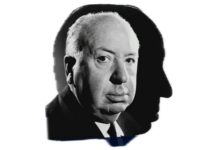Please allow me the opportunity to convert your familiar sensibilities to a new, dynamic way of thinking.
Before you stop reading, let me first assure you that my persuasive prose and postulations aren’t the direct result of my attendance at the latest and greatest motivational seminar. Neither have I joined a secluded cult deep within the Santa Cruz Mountains. No, the conversion I seek may in fact lead to your financial enlightenment.
I would like you to contemplate the conversion of part or all of your (eligible) traditional IRA(s) or other retirement account(s) into a tax-free Roth IRA.
Roth IRA conversions are not new, but new 2010 guidelines make everyone eligible. (Previous rules disallowed conversions for any taxpayer with $100,000 of Modified Adjusted Gross Income.) As with all things financial, conversions involve a tradeoff: Pay taxes on a portion or all of your retirement plan(s) now, for tax-free income to you and your heirs later. During your decision-making process, many will find this tradeoff appealing. Likely conversion candidates will answer yes to one or more of the following questions:
• Have your investments fallen with the market? If you consider your retirement account balances low and still at depressed levels, this might be a perfect time to convert. If investments rebound subsequent to a conversion, all the growth will be tax-free.
• Do you think your current tax rate is low and will soon increase? If you think that Congress will increase tax rates in the future (as many experts predict) or that you will increase your earnings capacity down the road and will therefore move into a higher tax bracket, it often makes sense to pay lower, up-front taxes now. You can also make a special election exclusive to this year that allows you to either pay all taxes in 2010 or spread the taxable income from the conversion into two tax payments in 2011 and 2012.
• Are you 15 or more years from retirement, or can you delay distributions for that long? The longer you can go without taking distributions, the more opportunity the account has to grow and compound, and the higher the tax leverage will be.
• Do you have carry-forward losses from your business? If so, those losses may be used to offset a portion or the entire tax bill resulting from conversion. We did this for a client last year who converted an entire IRA to a Roth without paying any taxes out of pocket. Now, that retirement account is tax-free forever! Be sure to consult with your CPA.
• Do you have sufficient assets to pay for the up-front taxes on the conversion? Most experts agree that conversions only work if you can adequately pay for the taxes out of another account. What’s worse, if you are younger than 59½ and pay for the taxes with proceeds from your retirement account, you will end up paying a 10 percent penalty on top of the income taxes.
• Do you already have tax diversity among the assets that will generate your retirement income? You have surely heard of the importance of diversifying your retirement nest egg into different investments, but have you considered the importance of diversifying the tax characteristics of your assets? It’s good to have taxable, tax-deferred and tax-free assets to maximize your retirement income flexibility.
• Do you need to use all of your retirement account assets in retirement? Roth conversions can be valuable in retirement planning, but for estate planning, they are even more valuable. There are no mandatory required minimum distributions at age 70½, so your account can continue to compound tax-free throughout your life, and your heirs have the ability to “stretch” distributions from an inherited Roth IRA over their lives as well — a powerful incentive. Also, for large estates that may be subject to estate taxes, Roth conversions often result in a lower estate tax bill, because the taxes you paid on the conversion can reduce the size of your taxable estate.
As exciting as this new opportunity might be, this strategy is certainly not for everyone. Look before you leap, because there are also numerous tax traps that should be avoided at all costs. Any ultimate decisions should be fully vetted with your CPA, financial adviser and possibly estate planning attorney. But the initial questions above should be a good barometer as to whether you are a good candidate and should begin the process of digging a bit deeper.
My next column will address the drawbacks of Roth IRA conversions. Similar to this format, I’ll list some questions that will serve as warning signals indicating this tax strategy is probably not for you. True financial enlightenment should consider both the good and the bad outcomes your retirement path can lead to. Stay tuned.
• Orion Melehan is a certified financial planner for LMC Financial Services in Scotts Valley. Contact him at 454-8042 or or***@**********al.com.
Securities and investment advisory services offered through SagePoint Financial Inc. member FINRA/SIPC a registered investment advisor. LMC Financial Services is not affiliated with SagePoint Financial Inc. or registered as a broker/dealer.











